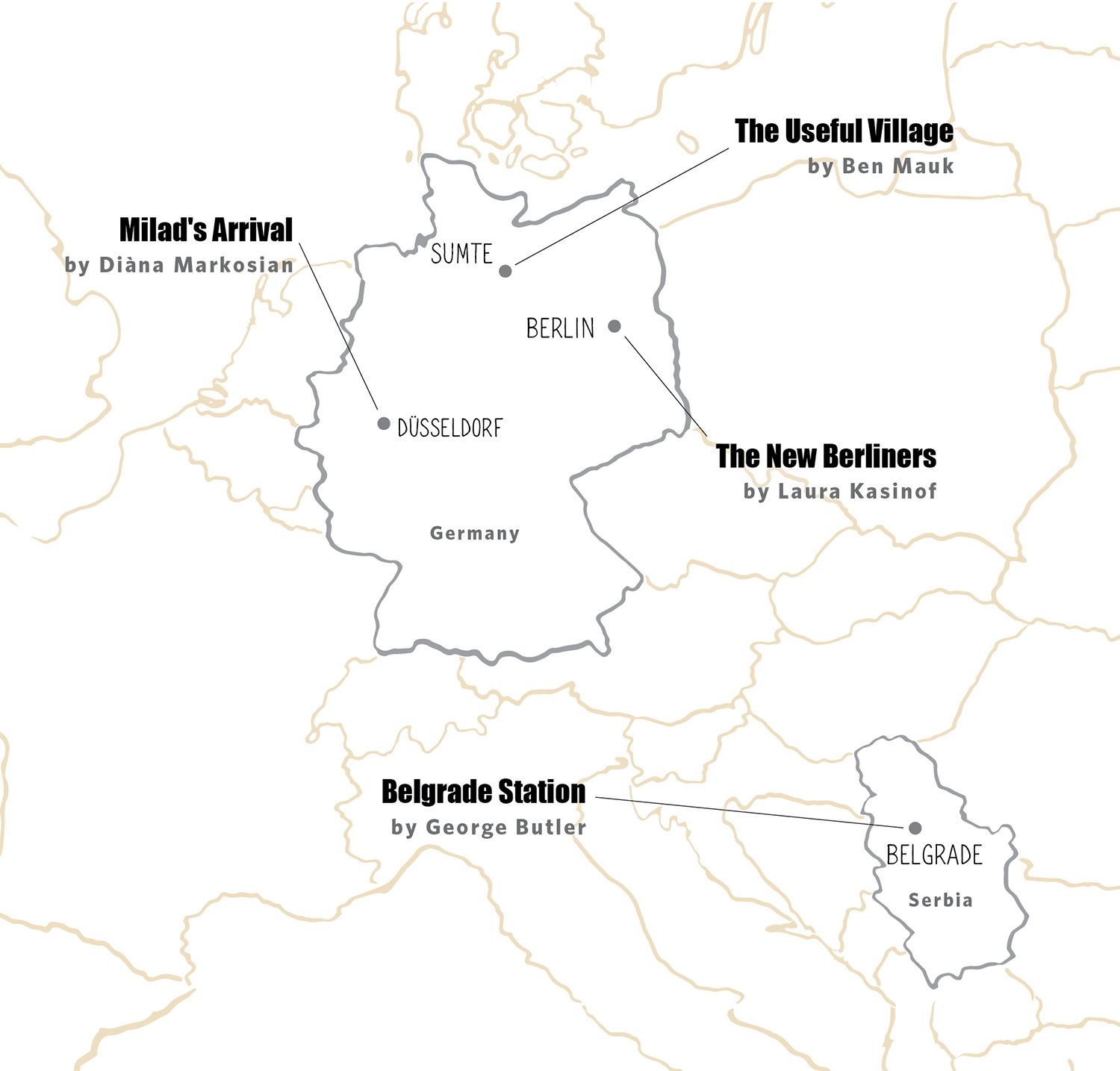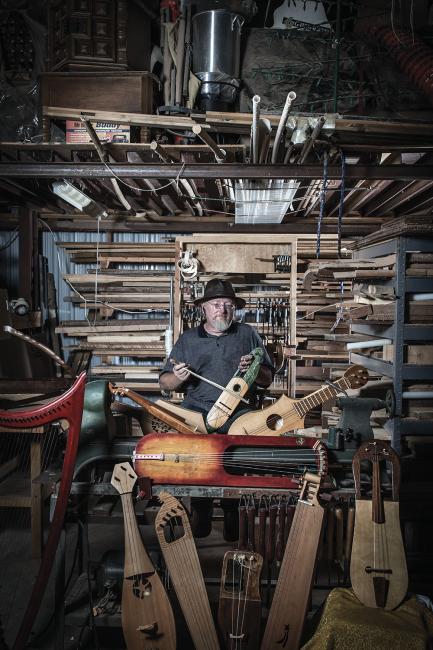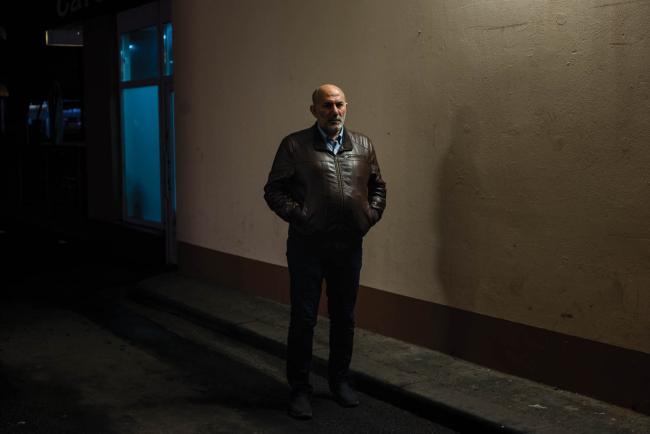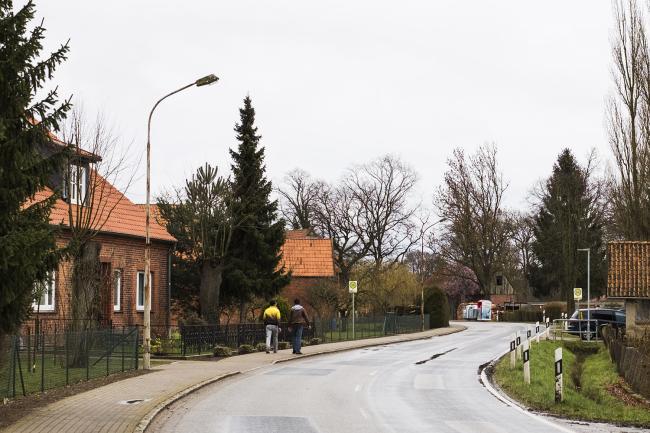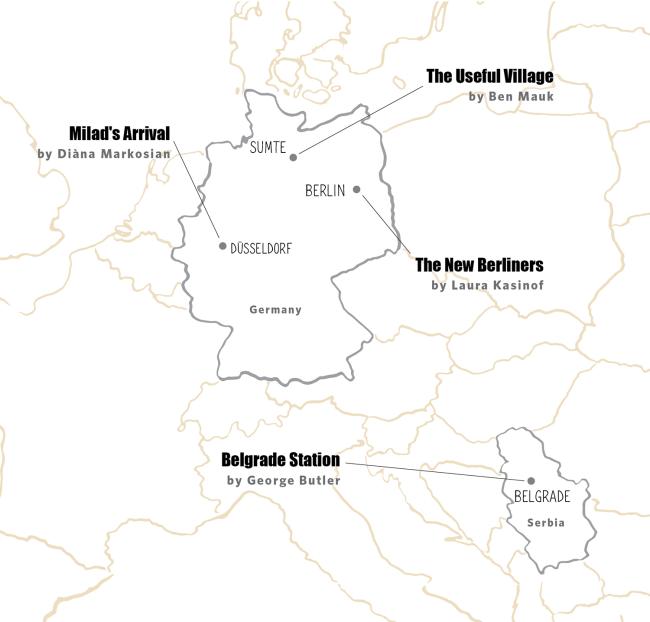
Soon after we published our first cover story on the 2015 migration crisis—a collection of portraits by photographer Jason Florio, taken during a rescue on the Mediterranean Sea—we began setting this feature in motion. The question we sought to answer was whether we could provide the reader with an immersive experience of not just the journey and its perils, but life inside the destination. A story of assimilation, of the bureaucratic limbo, of strangers in a strange land settling into something more awkwardly, unexpectedly permanent.
What follows is a collection of works that explore, with intimacy and precision, how that next chapter of the migration story begins. To compartmentalize the experience this way seems at least a little fraught with too much convenience, but it also points to an important principle in the business of literary journalism: to constantly be asking what happens when the first story, the louder story, ends. This is not to downplay the horrors of the crossing. In fact, that story has only gotten darker: In 2016, more than 5,000 migrants died or went missing at sea, making it the deadliest year to date. But we also know that stories of survival fall into a sequence. And when families like the ones we follow here have finally reached safety, with some distance between themselves and the war, or persecution, or extortion along the path of escape, then what are the tensions and struggles that follow? How are their lives different moving forward? Will they be able to stay, reunite, find work, or even peace? What happens next?
The section begins with the reportage illustrations of George Butler, who traveled to Belgrade, Serbia, this past January to document life among the thousands of refugees who’d been stranded since the official closure of the Balkan Route, the most popular migratory path for refugees since 2012. Following Butler’s portfolio are two reported pieces set in Germany. In one, Laura Kasinof chronicles a Syrian family’s first year in Berlin; in another, Ben Mauk tells the story of a small German village transformed by the influx of refugees. These pieces are bridged by Diàna Markosian’s photo essay, in which an Afghan boy uses art to document his transition to German life. Taken together, the works build a conversation of sorts, one in which these individualized experiences speak to the larger migration phenomenon that has transformed Europe.
This project was made possible by the generous support of the Pulitzer Center on Crisis Reporting. We are deeply indebted to them for their commitment to projects that reflect our commitment to investigative journalism from around the world.

